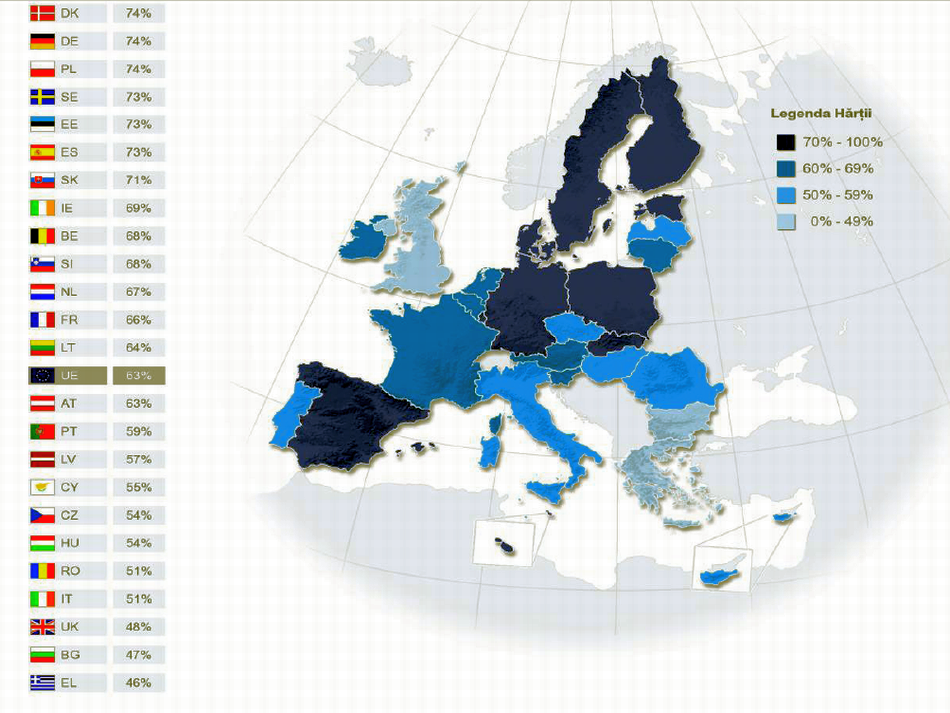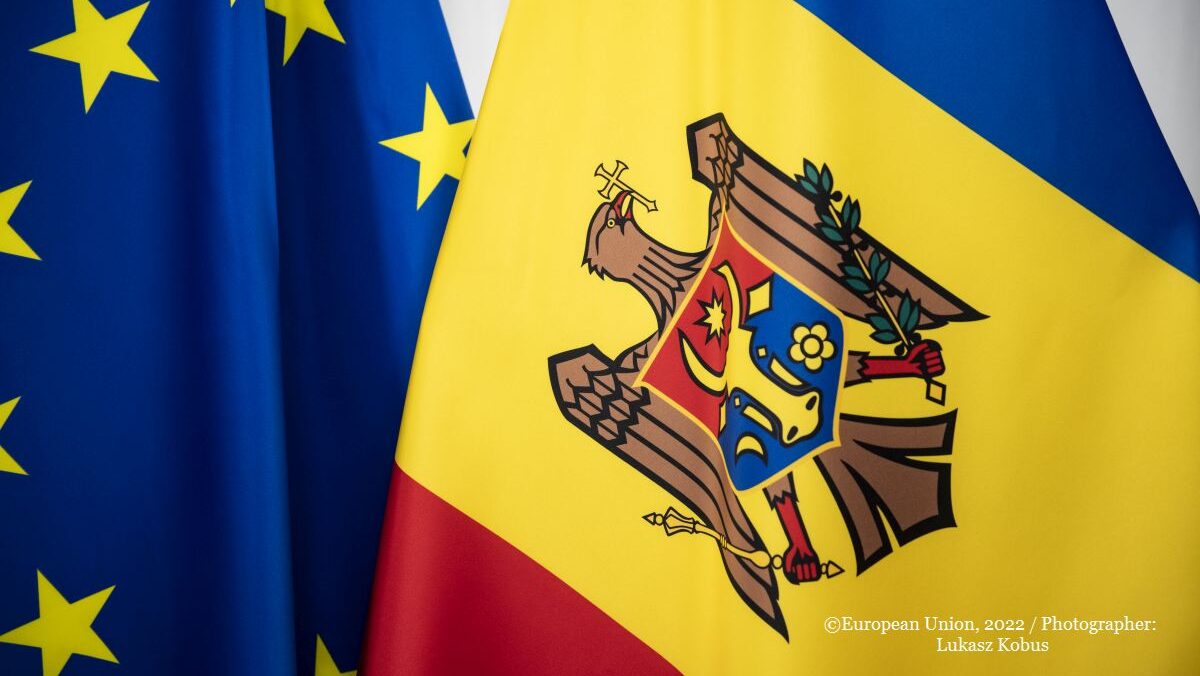The Romanians among the most optimistic Europeans
The confidence Romanians have in their Government has been on the rise since last autumn, before the parliamentary election, and equals the rate reported in the spring of 2012, according to the latest Eurobarometer report, made public on Tuesday.

Corina Cristea, 24.07.2013, 13:09
A member of the European Union since 2007, Romania remains one of the most optimistic countries with respect to the future of the Community. A Eurobarometer report made public early this week indicates that 62% of the Romanians have optimistic views, ranking sixth in the EU in this respect, after Denmark, Estonia, Lithuania, Malta and Poland.
At the opposite pole, the highest pessimism rates are reported, quite unsurprisingly, in those countries that benefited from international assistance plans, like Greece, Cyprus and Portugal, given that these plans were accompanied by austerity measures. Conducted 10 months ahead of the European Parliament elections, the Eurobarometer reveals that Romania ranks fourth in the EU in terms of the improved information on the procedures to elect MEPs.
As it turned out, the number of Romanians who know how this process unfolds has grown by 5%. The economic and monetary union is also more popular in Romania than in Eurozone countries like Spain, Portugal and Cyprus, and is viewed with a friendlier eye than in non-EU countries. The poll also indicates that over two-thirds of the Europeans believe their voice makes no difference in the European Union. This is the highest level since the autumn of 2004, when this question was first asked. This upward trend started in the spring of 2009, and this opinion is widely embraced in Greece and Cyprus (89%). High rates are also reported in Portugal, Spain and Italy, but in Romania as well, where 71% of the people think their voice is not heard in the Union.
According to the Eurobarometer, the rate of Euro-skepticism is growing, with 60% of the European citizens saying they lost faith in the EU. Meanwhile, over half of the Romanians feel they are citizens of the European Union, which is not the case in Bulgaria, Cyprus or Greece. Using a common currency strengthens, to some extent, this sense of membership: 64% of the interviewees in the Eurozone feel they are EU citizens, as against 57% from outside the Eurozone. The perception of the national economic situation remains stable, although rather low. The most important issues Romanians have to deal with at present are the economic situation, price hikes and unemployment.
On the other hand, most Europeans view rights such as the freedom of movement as the main benefits of the European construction. Six people in ten would like to know more about their rights, and less than half of them are aware of what these rights consist in.






























